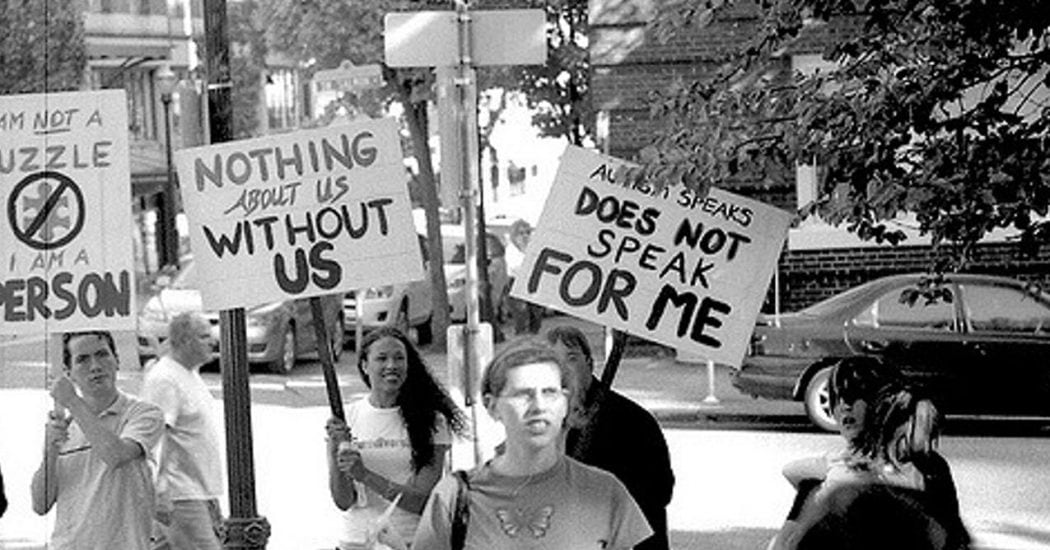
KJIPUKTUK (Halifax) – April has passed which means another month of “Autism Acceptance and Awareness” is over and done with.
While it is important to spread the message of acceptance in terms of autism, it shouldn’t be reserved for only one month of the year, and there are right ways and wrong ways of doing so.
For as long as I can remember, any time autism was brought up in the classroom, it was often a very short discussion. I feel if we are to start somewhere, we need to be educated on autism from the beginning of primary school. There would be no harm in that, I mean, I was educated on autism in preschool because I had it. I don’t see the problem with that.
There are – of course wrong ways to spread autism acceptance, while most people mean well, they don’t always have autistic people’s interests at heart.
Many people who are eager to learn about autism tend to jump to Temple Grandin as a well known public figure who is autistic. While she does have lived experience, she misses the mark on a few things.
She subscribes to the idea that the measles-mumps-rubella vaccine could cause autism. Which in fact, is very inaccurate.
She even goes as far as promoting eugenics, which means to extract a disability, diseases and/or deemed unappealing human characteristics from the human populace. “In an ideal world the scientist should find a method to prevent the most severe forms of autism but allow the milder forms to survive,” she wrote.
That, alone, should tell you everything you need to know about Temple Grandin and her views on autism. She also subscribes to the labels “high functioning” and “low functioning”
“High Functioning” and “Low Functioning”. Two terms that many autistic people actually prefer not to hear. These two infamous terms have been around for as long as I can remember.
What “High functioning autism” means is someone with autism who is able to read, write, talk, and can perform many basic human functions without assistance. Whereas “low functioning” means the individuals in question need assistance with doing many tasks in day-to-day life.
I agree that no two people with autism are the same. Every autistic person has different strengths and weaknesses. However, we should honour those different strengths and weaknesses rather than trying to label autistic people as “high functioning” or “low functioning. Let’s ditch those terms and just stick with the term “Autism”.
Another way that attempts to spread acceptance is “Light it up Blue” day, While the message of Light it up Blue may sound like it has good intentions, it does not. This slogan originates from the group Autism Speaks.
Autism Speaks is an organization which has faced controversy over the years for not representing autistic people correctly. They also put funds from fundraisers towards research into finding a cure. For the record, there is no cure because autism is not a disease, so let’s stop treating autism as if it is.
For those who don’t know what Light it up Blue is about, on the second day of April every year, people around the world wear blue in order to “raise awareness” as Autism Speaks would say. We do not need to be celebrated, we like to be treated like everyone else. What we need is acceptance, not celebration.
To have Light it Up Blue Day almost feels infantilizing.Light it up Blue almost suggests that being autistic is a yearly holiday. We are not a holiday, we are people living with autism. While I cannot speak for all autistic people, I know that I am not alone in this opinion.
I am all for autism acceptance 100%, not just for the month but all year around. I encourage non-autistic people to start asking questions and reading about autism. It’s never too late!
Another thing you should be trying to do as well is to amplify autistic voices. If you are not autistic and/or don’t have a family member/friend who is autistic, I especially encourage you to do this.
The most important and realistic way to spread the message of acceptance for autism is to have conversations about autism. If autism was brought up in conversation more often, it would be on more people’s minds more often. If more discussions were had around autism, there would be less stigma as well. Make space for autistic people and listen to what they say.
James Piercey is enrolled in the two-year Radio Television Journalism program offered at the Nova Scotia Community College. He is doing a one-month internship at the Nova Scotia Advocate.
See also: Autism and how to be a #RealAgentofChangeNS
James Piercey is enrolled in the two-year Radio Television Journalism program offered at the Nova Scotia Community College. He is doing a one-month internship at the Nova Scotia Advocate.



